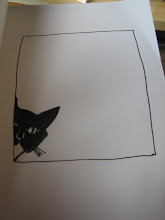I have seven books I consider to be my desert island, holy grail, favourite books of all time. I define them by the quality of writing: where one sentence after another leaves you so breathless with its beauty and brilliance, that you want to underline the whole darn thing (I'm an underliner). The books that you carry around with you for some time after you've finished them, simply because you can't bear to part with them just yet. (Mine are: Ralph Ellison's Invisible Man, Amitav Ghosh's Shadow Lines, Mark Twain's Adventures of Huckleberry Finn, Salman Rushdie's Midnight's Children, Cormac McCarthy's All the Pretty Horses, and F. Scott Fitzgerald's The Great Gatsby. And yes, there's a lot of American fiction in there, I know.)
Burnt Shadows, a novel that traces the interconnected lives of two families, and in doing so encompasses Nagasaki, partition, and the Afghan war, had moments of that kind of brilliance and beauty, moments that had me scrabbling for a pen and ruler (I always use a ruler). But at the same time, there were the kinds of sentences that are very obviously designed to get a reader scrabbling for a pen - over-written, with unnecessarily extended images, nestling uncomfortably with the rest of the prose and dialogue. Ones where you can visualise the author sitting back with a smug satisfied air, thinking, ah yes, that'll get them. There's a fine line between the two, and it's a subjective one. But when I come across these latter sentences, I just bristle with irritation (I did a lot of this whilst reading God of Small Things. Heck, I was just one irritated bristling thing throughout). And the spell is broken.
So I can't quite join in the critical frenzy that has occurred over this novel. This isn't to say it's not good - it really is, and at points I was moved to tears, hissed with anger, and at several points, really physically wanted to shake one of the characters. I'm also intellectually intrigued by it: it's a fascinating tale of migrations - but unlike some postcolonial texts, Shamsie's rendition of migration is the very opposite of celebratory. Her characters are forced to move, and hate doing so. They adapt, for sure, but she demonstrates how adaption exists alongside sadness and loss that do not dissipate with time. She also sets up an international network of people that span India, Pakistan, Afghanistan, Japan and New York, but again, at no point does this seem a joyous example of globalisation, but is fraught and tragic, resulting in as many misunderstandings as insights into cultural difference. And the novel's denouement is devastating, and politically savage.
But it's just not quite brilliant. I'm a hard reader to please, perhaps, but there's just too much uninspired dialogue, with the odd overwritten sentence thrown in to pep it up. It's a shame, because the novel's vision is really quite ambitious, and Shamsie obviously has the skill to have written the entirety of it very well. So I bristle as much in irritation about what this novel could have been as I do over its odd overwritten sentence.
Find me on Instagram!
2 days ago


No comments:
Post a Comment